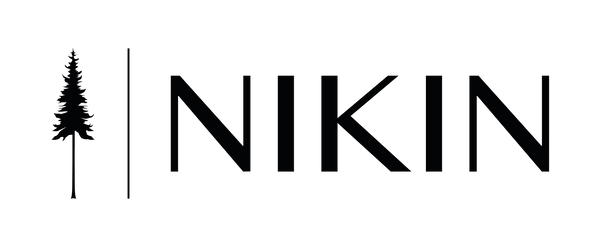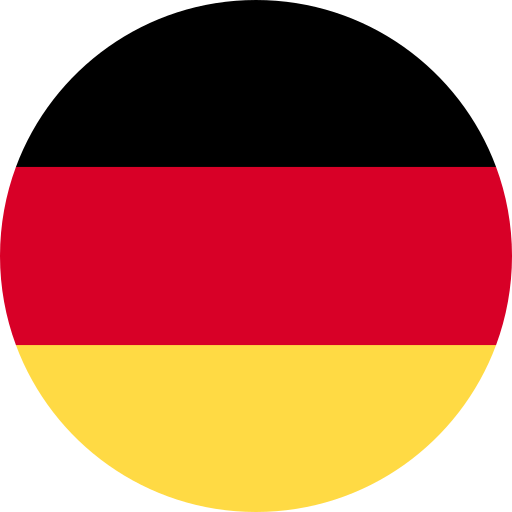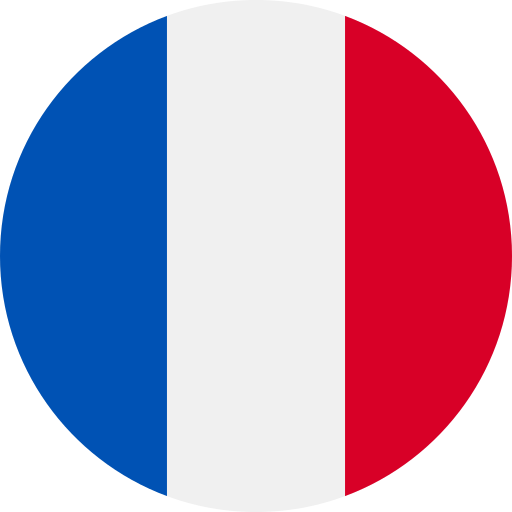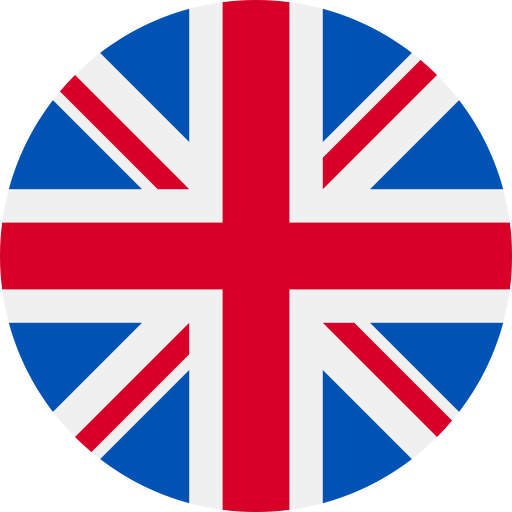Frequently asked questions
"Circular Cashback"
Here you will find the most frequently asked questions about our "Circular Cashback" buyback system and the naNea and NOOSA® material from which the circular products are made. We also provide information on how to return your worn product and receive payment for it.
General information on the "Circular Cashback" buyback system
As soon as you have signed out your circular product, you can send it back to us. Scan the QR code on the label or visit https://nikinclothing.com/pages/circular-cashback-portal. We will buy your product back. For example, for a circular T-shirt for CHF 79.90, this is a maximum of CHF 20. You will receive 10.- for the material of the T-shirt and a maximum of 10.- for wearing the T-shirt for a long time. The longer you have worn and cared for it, the more you get back. We will also cover the return shipping costs.
No, we will pay you 5 EUR more to cover the shipping costs. This should be sufficient for parcels or large letters within Germany.
"Circular Cashback" means that we buy back all our circular products in order to reuse them in a closed loop. The aim is to avoid waste and reuse raw materials again and again. This is also the name we have chosen for the buy-back system, where we pay a maximum of 25% of the sales price of circular NIKIN products back to you.
You receive a fixed amount for each new year started. In the case of the T-shirt, for example, it is a total of EUR 10, spread over 5 years. That makes 2 EUR per year. You are entitled to this for the first time after the first year from the date of sale and thereafter as soon as at least 6 months of each year have passed. For example, if you bought a T-shirt on November 15, 2024 and want to return it on September 10, 2026, then you have worn the T-shirt for 1.5 years and will receive 4 EUR back, in addition to the 10 EUR for the material of the T-shirt. However, if you want to return the T-shirt on February 20, 2026, then 1.5 years have not yet passed and you are entitled to EUR 2 for wearing it for one year.
If the circular product breaks within the first few days or months, e.g. because it got a self-inflicted tear while hiking, then you can send it back to us. In this case, we will pay you money for the material and buy it from you. However, you will only receive money for wearing it for a year or more. We also encourage everyone to wear their products, including circular products such as T-shirts, hoodies, winter hats and socks, for as long as possible and to take good care of them.
This is a new model and we have to build it up in such a way that we can be profitable with it in the long term and also scale it up. Our goal is to replace all normal products with circular products in the long term. If the discount were too high, we wouldn't earn enough from it and it wouldn't be interesting enough for other retailers in terms of price or profitable for us. We have therefore programmed our online store so that general discount codes are not applicable to circular products. Please note that on Black Friday weekend 2025 we offered a limited 100% "Circular Cashback" promotion on the circular winter hats. This was a one-off promotion and was not a discount on the product.
For accounting and legal reasons, the right to repurchase by NIKIN or resale by the person who purchased the product expires after 5 years. However, it is absolutely in our interest that the product is worn for as long as possible and the quality of the products is also high enough to be worn for more than 5 years. Everyone therefore has the right to contact us, even after 5 years, and we plan to be accommodating in the interests of sustainability and the circular economy.
You can follow the normal process as if you had bought it directly from NIKIN. This means that you can also scan the QR code on the label or visit https://nikinclothing.com/pages/circular-cashback-portal.
No, there is no such thing. If the entire product, e.g. the T-shirt, is returned, regardless of how damaged it is (e.g. in the form of tears), we will take it back. However, if a large piece of the fabric is missing (at least 10% of the total fabric), e.g. both sleeves or a part of a pair of socks is completely gone, then we reserve the right to reduce the amount to be paid at our discretion.
The product is checked by internal experts. We can also check the edition based on the serial number marked on the inside.
We have set up the model in such a way that we can implement it in the long term and for all circular products. We firmly believe that, on the one hand, we can ensure that the material comes back and, at the same time, we can extend the existing life cycles of the products and materials through financial incentivization.
The normal guarantee, as with non-circular products, naturally also applies to circular products.
The T-shirt made from naNea that we launched in early 2023 was our first step towards circular fashion. Back then, the take-back process involved industrial composting. Now the product is taken back and then recycled together with other products from naNea and processed into a new yarn that has the same quality as the first fiber. Another new feature is our comprehensive "Circular Cashback" program, which makes the return and recycling of T-shirts even more attractive. With this program, we ensure that the materials remain in the cycle and can be processed into new products again and again.
Product and material details naNea
naNea is an innovative, biodegradable co-polyester that has been specially developed for the circular economy and the textile industry. It can be recycled again and again in consistent quality without any loss of quality. It was developed by the company OceanSafe AG from Bern.
As a synthetic fiber, naNea is currently still made from petroleum-based raw materials, as OceanSafe wanted to quickly provide a solution to the challenges of the textile industry and recycled materials were not yet available in industrial quantities during development. Furthermore, the current material offers a consistently high quality, which contributes to an extended lifetime of the textiles and longer enjoyment! However, OceanSafe now attaches great importance to producing naNea from recycled materials in the future. In future, your returned shirts will also contribute to this at the end of their useful life.
naNea has been proven to degrade in seawater to over 93% within 99 days, according to the ASTM D6691 standard. This degradability is the result of naNea's special polymer structure, which does not require the use of additives or enzymes. The material is designed to be inherently biodegradable. Crucially, naNea contains no toxic substances or harmful microparticles that could be released during degradation. The material is biodegradable not only in the sea, but also in soil and landfill environments.
During decomposition, naNea breaks down into natural components such as carbon dioxide, water and biomass. These degradation substances are thus present in the environment, are not ecotoxic and do not cause any environmental pollution. Importantly, naNea leaves no harmful residues such as heavy metals or toxic chemicals, which are often found in conventional polyester fibers. Thanks to Cradle to Cradle Gold™ certification, the material is safe for the biological and technical cycle, even after its use.
naNea is the first synthetic fiber in the world to achieve Cradle to Cradle Gold™ certification. Most notably, naNea is the only material in this category to achieve the Cradle to Cradle Platinum rating in the "Material Health" category - naNea is free of toxic ingredients and heavy metals. What makes naNea truly unique is its ability to biodegrade over 93% in the ocean in just 99 days. This makes it one of the few synthetic fibers that meet the strict requirements for biodegradability. But the most impressive feature of naNea for us is its recyclability. The fiber can be recycled over and over again with consistent quality.
For example, an old T-shirt made from naNea can be chemically recycled to make new polymer, which is spun into yarn that can then be processed into a new product - such as another T-shirt. In this way, the material always remains in the cycle and avoids waste, while at the same time conserving natural resources.
Yes, but not yet on a large scale. The recycling processes have already been successfully tested several times on a small scale by our partner OceanSafe. However, we have not yet collected enough returned T-shirts to apply these processes on a large scale. We have been offering our innovative naNea T-shirt since 2023, and unfortunately no T-shirt has been returned as of November 2024. However, we are confident that the return rate will increase with the new "Circular Cashback" program and that we will be able to recycle returned circular items for the first time in the coming years.
NIKIN expects that the margins for circular products may initially be slightly lower compared to conventional products, as the introduction of a new business model and the implementation of recycling and payback processes require financial and time investments. In the long term, however, margins are expected to improve as material costs are reduced through the closed-loop system and process efficiency increases.
NIKIN is not looking for investment in the form of money, but is always open to partnerships that support the development and scaling of the circular model. We are already working with partners such as OceanSafe and are interested in further collaborations that support our goal of a beautiful nature and a sustainable fashion world. If you are interested, companies can contact our team directly.
NIKIN plans to increase sales through various measures, including targeted marketing campaigns, educating customers about the benefits of circular products, expanding the product portfolio to include more circular items and introducing incentives for customers to wear and return their clothes for longer. NIKIN will also continue to enter into partnerships and collaborations with other sustainable brands and organizations, as was the case with NOOSA® in 2025.
Product and material details NOOSA®
NOOSA® is an innovative textile fiber based on polylactic acid (PLA), obtained from plant sugars (e.g. from corn). It is fully recyclable, durable and contains no toxic additives or permanent microplastics. The fiber was developed for closed material cycles and can be reused in new fibers using the NOOCYCLE® process.
NOOSA® is made from sugar plants (e.g. corn). The sugar is fermented, processed into lactic acid and then polymerized into PLA. The entire process is based on renewable raw materials.
NOOSA® fibers (PLA) decompose completely under the influence of moisture (hydrolysis). This produces water-soluble molecules such as lactic acid, which are broken down by microorganisms into CO₂, water and biomass. This was proven in a meta-study.
NOOSA® offers a number of advantages over traditional materials such as cotton or polyester. The fiber is designed to be completely circular and can be recycled again and again in the NOOCYCLE® process without any loss of material or quality. NOOSA® is made from plant-based raw materials such as corn and has a 50% lower ecological footprint compared to conventional cotton - especially in terms of CO₂ emissions, water consumption and energy use.
In addition, NOOSA® does not produce any permanent microplastics, which has been confirmed by independent studies - a key advantage with regard to upcoming EU regulations on microplastics. The fiber also impresses in terms of durability thanks to its high tensile strength and dimensional stability, which extends the service life of the products. NOOSA® also meets the requirements of the EU Ecodesign Regulation (ESPR) and is ready for the upcoming Digital Product Passport system, making it a future-proof material for sustainable fashion.
Partners and sustainability
OceanSafe is a company that specializes in the development and production of sustainable textiles. They use materials that are fully recyclable and biodegradable.
NOOSA® is a company that specializes in the development of innovative, plant-based fibres for the textile industry. Their materials are fully recyclable, biodegradable and do not cause permanent microplastics. With their closed-loop recycling process NOOCYCLE®, they enable a true circular economy - from production to the end of the product's life.
Cradle to Cradle certification evaluates products according to their environmental friendliness and recyclability. It ensures that materials can be safely reused or recycled without generating waste. Our circular T-shirts and hoodies made from the naNea material are Cradle to Cradle certified.
OceanSafe and NOOSA® are among the few suppliers of a marketable circular fiber. OceanSafe, or naNea, is also a Swiss innovation from a company that will continue to promote sustainable textile production in the future and drive the development of fully circular fibers and products. NOOSA® comes from Belgium and we have been working together since 2024. They have even visited us in person at our office in Switzerland.
Goals & vision of NIKIN
NIKIN wants to bring about real change in the fashion industry and prove that fashion can be sustainable, innovative and future-oriented at the same time. We have set ourselves the goal of offering exclusively circular products by 2030 - in other words, garments that remain in a closed loop. In 2024, we launched the first circular T-shirts and hoodies made from naNea material and the circular cashback model. In 2025, we expanded our range with winter hats and socks made from the plant-based material NOOSA®, taking the next step towards a circular textile world.
The circular economy reduces waste, conserves resources and promotes the sustainable use of materials. Customers benefit from long-lasting products and a financial incentive for sustainable behavior.
NIKIN is planning further product launches with circular materials and is working on new business models.
For NIKIN, the circular economy means creating products that do not harm nature and remain in a closed cycle. The focus here is on extending the service life, for example by repairing. Only at the end is a product either composted or recycled without losing any of its quality. Our goal is to make all our products fully circular by 2030, thereby actively contributing to a more sustainable world and cleaner nature.
Financial incentives and buyback program
This depends on the product. In the case of a T-shirt, you will receive EUR 10 for the material of your old T-shirt and up to EUR 10 extra the longer you have worn and cared for it. For socks, you will receive EUR 3 for the material and up to EUR 7 extra for wearing them. For all other products, please refer to the respective product pages.
The financial incentive is intended to motivate customers to wear their products for as long as possible and to look after them carefully. By extending the lifespan of the products, we reduce the need for new production and thus the ecological footprint. This supports our mission to minimize waste and protect nature. Furthermore, our experience and that of other clothing brands shows that without financial incentives, the hurdle for many customers to return the product is too great.
No, there is no penalty if you do not return the product and do not sell it back to us. However, in this case you will neither receive the material value (e.g. EUR 10 for a T-shirt) nor the additional reward for wearing the product for a long time. Our aim is to take back as many products as possible in order to recycle them and keep them in circulation.
Transparency and sustainability
NIKIN has committed to offering 100% circular products by 2030. We rely on materials such as naNea or NOOSA® that can be fully recycled and are developing take-back programs such as "Circular Cashback" to ensure that materials are returned to the production cycle. We are also working on other projects such as the development of a circular shoe with Ochsner Shoes, taking back old (also non-circular) clothes with Turns and more.
All returned products made from naNea material undergo a Cradle to Cradle certified recycling process, which is carried out in collaboration with our partner OceanSafe. OceanSafe ensures that the materials are turned into new yarn from which new products can be made. For products made from NOOSA®, the Belgian company itself takes back the materials and ensures that they are recycled.
Yes, this is the case with naNea articles: Our take-back system is based on a Cradle to Cradle certified recycling process, which is carried out in collaboration with our partner OceanSafe. This certification ensures that the returned products can be fully recycled in an environmentally friendly way and remain in the cycle. OceanSafe ensures that the materials are turned back into new yarn that is used to manufacture new products. Through this strict certification and regular auditing, we ensure that our take-back system remains sustainable and environmentally friendly.
NOOSA® does not currently have an official certification such as Cradle to Cradle. However, the company has had its recycling processes - in particular the NOOCYCLE® process - independently audited and has been able to scientifically prove their environmental friendliness. The recovery of over 99% of the material and the use of safe, reused solvents show that the system meets the highest environmental standards.
Not at present, but NIKIN has set itself the goal of measuring and continuously reducing the company's overall CO2 footprint. Reducing CO2 emissions is an important part of our sustainability goals. However, as our resources are limited, we have currently decided to increase our focus on developing circular products and business models. We believe that promoting the circular economy will lead to a significant reduction in environmental impact in the long term, as it reduces waste, conserves resources and minimizes the need for new raw materials.
Yes, the circular economy is more sustainable overall, even when transportation and recycling energy are taken into account. By closing the material loop, raw materials are saved and the production of new materials is minimized. In addition, OceanSafe is constantly working to improve the energy efficiency of recycling processes and relies on renewable energy (at least 50% for each part of the supply chain) to further reduce its environmental footprint. Despite the transportation and energy required, the circular economy is a much more environmentally friendly alternative to the traditional linear economy.




